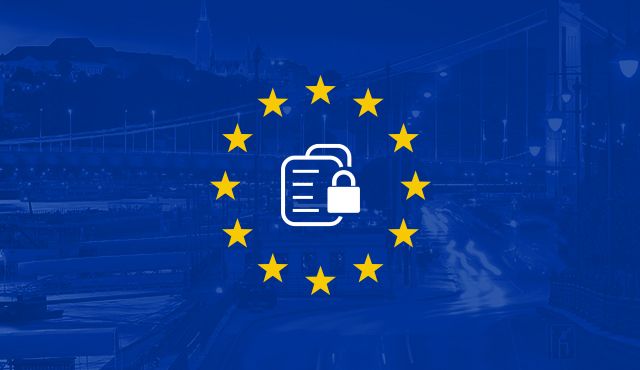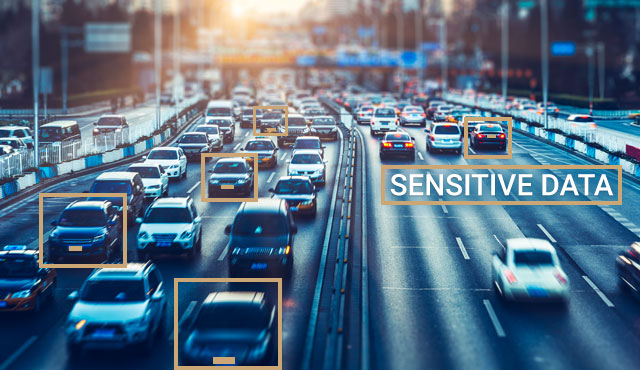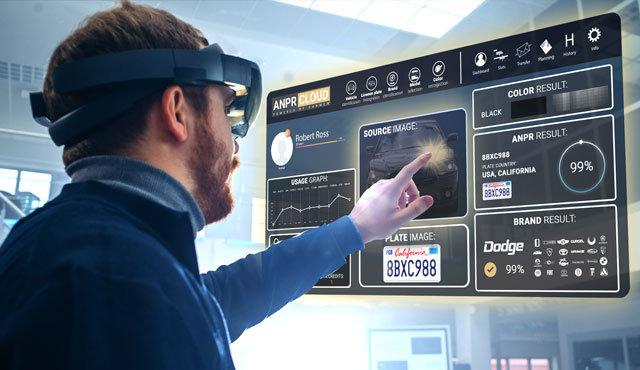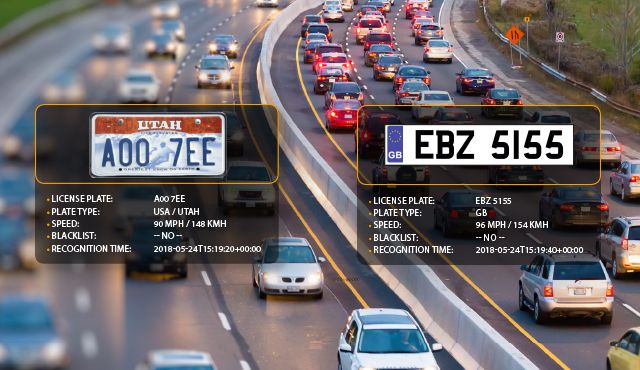
Is My Data Safe With a Cloud ANPR Service?
The concerns, questions and solutions – for traffic experts who wonder how safe their data is with an online vehicle identification service.
As cloud-based applications become a part of everyday life, traffic experts might be wondering how safe their data is with an online vehicle identification service. The following article will fill you in on the concerns users like yourself might have – like cloud data protection – if you choose a “Software as a Service” application as opposed to an on-premise solution. We will provide you with a due diligence checklist to make sure you cover all your bases. Finally, we tell you a bit about our approach to developing our ANPR Cloud vehicle identification software to make our customers’ lives easier and more efficient.
Up in the Cloud
Whether it’s sunny or raining, in the 21st century everything’s literally “up in the cloud”. You upload photos to Google Photos; your music is not on CDs or vinyl records, it’s on cloud-based music services like Spotify or Pandora. Meanwhile, you use shared spreadsheets in your business to work collaboratively with your colleagues; you communicate with them over online conference software like Microsoft Teams or Zoom.

Behind the scenes, there are so-called “Software as a Service” (SaaS) applications, which are also cloud-based. According to a survey from McKinsey, ever-more companies are adopting such services, which are seeing a growth rate of 20% per year. And software developers are also increasingly pursuing SaaS applications.
But why exactly have SaaS-based applications become so popular? Simple: the extensive list of advantages outweigh that of “on-premise” solutions, preventing businesses from big headaches.
On Software as a Service solutions, everything happens virtually. You won’t need to buy a software package from a shop, or download a large program; the software is online, so there’s no need to install anything on your system. There’s also no need to develop, update or maintain it, as the provider does that for you automatically. The SaaS provider also ensures the system is up and running, making things easy for you.
You won’t need a sophisticated development team of programmers either, saving you a lot on the initial investment costs. Subscription-based SaaS programs let you adjust the scalability that your business needs.
Typically, providers of such software services make it super easy for you to use their programs. When everything’s up and running, it’s almost like things are on autopilot: no need for supervision, your system just works.
SaaS Solutions: Nothing’s Perfect? (Yet)
Sounds like a perfect universe, right? Well, of course, the devil is in the details; not even SaaS solutions are free of security concerns. The primary aspects software users are sometimes concerned about are the safety and integrity of their data, which is stored on the provider’s server – not theirs.

This raises some big questions like:
- Will we have control over the data we submit?
- How easily can we access those data?
- How well is that information protected?
- Will others gain access to it?
- If we don’t have complete control, should we worry about identity theft?
It’s in the best interests of SaaS solution providers – including Adaptive Recognition – to address those concerns.
Vehicle Identification: Specific Concerns
If you’re in a business dealing with vehicle identification/transportation surveillance and operate a car park or a toll road, your vehicle identification software collects data from the cars detected by your hardware, so it pays to run through the same questions we asked above.
So, how much of a sticking point should data integrity be if you opt for a cloud-based solution?
How Does a SaaS Application Deal With GDPR?
If you operate a toll road in Europe, you most likely know well that car owners’ license plate information is “personal” data. Therefore, individuals must give their consent to third parties to use said data. And those third parties must manage such data under the rules of the EU’s General Data Protection Regulation (GDPR).

But if such an organization subscribes to and has its hardware – e.g. traffic monitoring cameras – hooked up to a SaaS application, the operators of that application are the ones processing the data. This means that the software provider must have proper technical and organizational controls to comply with regulations protecting individuals’ privacy.
To make sure your system is fully compliant regarding data security and privacy regulations, we suggest doing a thorough screening. For example, answer the question: can others access the data that you collect? Also, review your SaaS vendor’s policies and procedures, and gauge how stable the vendor is. Be sure to communicate with the software provider on where they will store your data, and specifics about the terms & conditions of using the service. Hopefully, the vendor’s transparency on these issues will ease your concerns.
Adaptive Recognition’s ANPR Cloud: Our Approach
With all that in mind, would you mind if we told you a little bit about Carmen® ANPR Cloud? We designed this system specifically for businesses operating in the vehicle identification industry. We’ve put in a lot of time and elbow grease into addressing the questions and considerations users like yourself may have about using our SaaS application to operate access control systems for a wide variety of scenarios: from road safety solutions to tolling systems, from transportation surveillance to smart parking solutions.

To get you started, we’d like to run through a couple of the specific data usage questions that you’re sure to come across regarding our SaaS solution, or any other – and show how we respond to such queries.
Your Data Security Concerns Finally Answered
Perhaps you’re concerned with one of the most basic questions, i.e. what is the user data management protocol for our service? In answering this, we should emphasize that our data management policies and procedures are completely compliant with the EU’s strict GDPR rules. (You can find detailed information in our privacy policy.)
But what about the pictures involved in, say, a road tolling operation? “What happens to those?” you might ask.
When you send an image to ANPR Cloud API, we must store that image for a short moment (80-200ms), only to call the recognition algorithm and return the results to you. For online (immediate response) operations, the image data is processed in memory and not persisted to disk.
It is also important to mention that your data is not stored in the cloud, at all. Your data are used only for the recognition process, temporarily stored in the Amazon web server’s ultra-encrypted storage before being entirely deleted. Both, images submitted to the cloud and the data sent back to your system, are secured with SSL encryption. Moreover, you can be sure that we will never ever share any images with any entity other than the web services provider that hosts our service. Does that address your concern?
For more info on those and related topics, please check out the Data Usage FAQ section on the Carmen® ANPR Cloud website or take a look at our Data Processing Agreement.
If for some reason you feel those sections don’t answer your questions, you can also contact us directly – our experts are very proud of their achievement and would love to tell you about their system. And with a free trial at your fingertips, perhaps we can encourage you to take Adaptive Recognition’s cloud-based ANPR out for a spin. Let’s do it!


